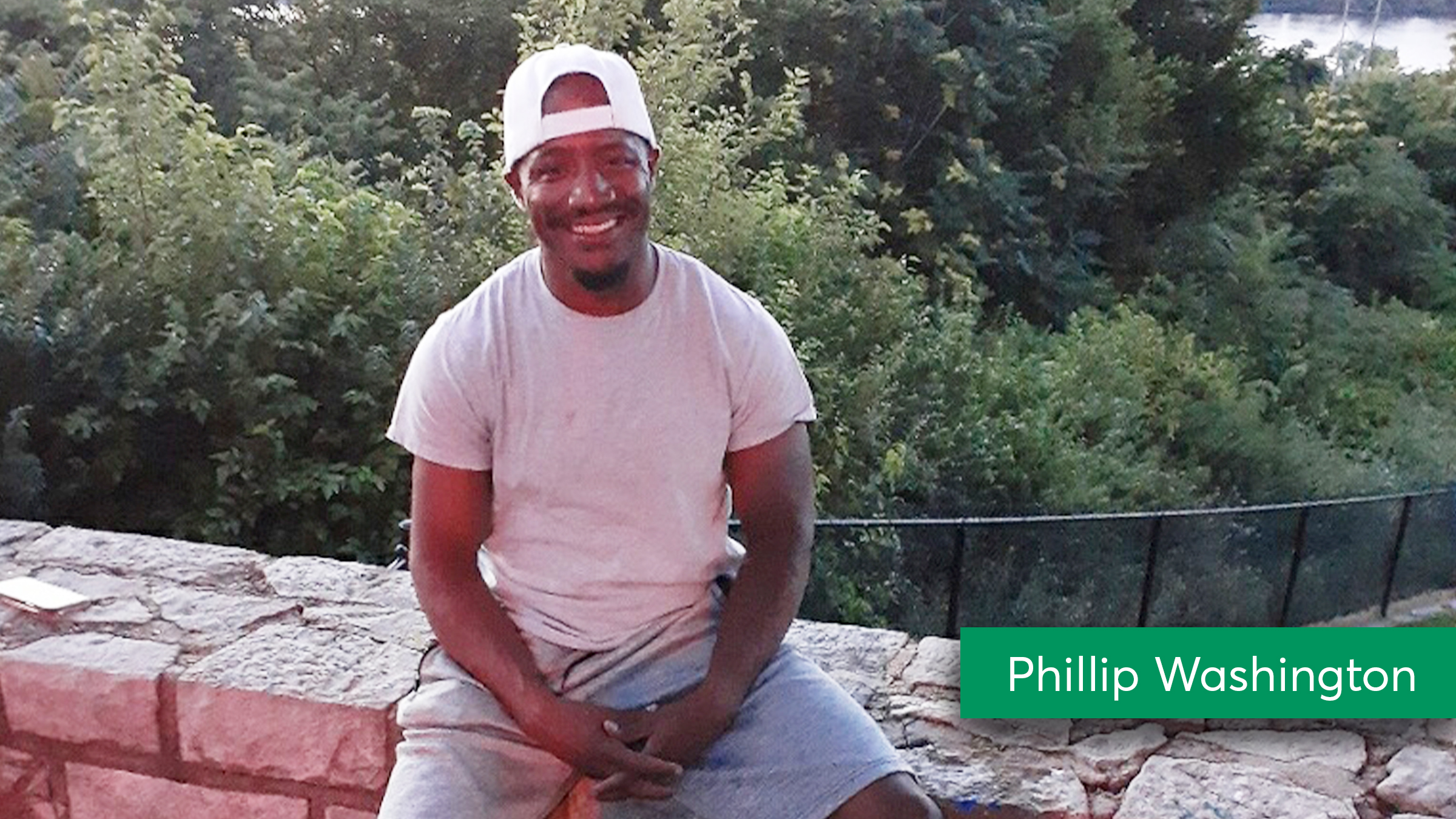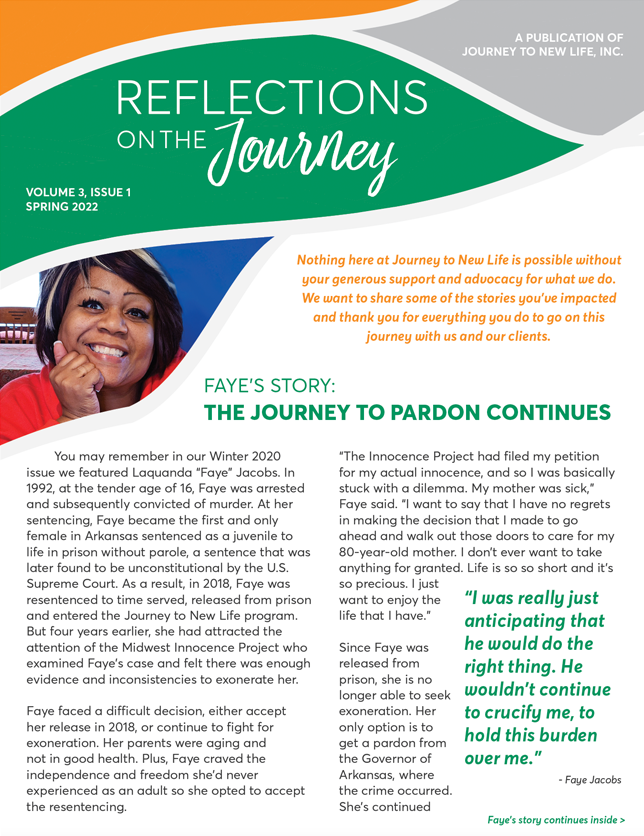
At the age of 13, Phillip was placed in a group home, and that’s where he remained until he graduated high school and aged out of that system — only to find himself in a whole new system.
He was just 21 years old when he was sentenced to 20 years in prison, a sentence he was required to serve 85 percent of the time. After fulfilling those 17 years, he knew he needed help. “When you get that close to the door, you want help,” Phillip said. He had a plan, but he needed mental, financial and spiritual support. “If you don’t have that, it can be rough. Even with that kind of positive support system, it can be really rough,” he said.
Thankfully, he connected with Journey to New Life while at the Kansas City Reentry Center. The same day that he was released he went to Journey to New Life for assistance with basic necessities and case management. His home plan was to live in his sister’s garage, but she was struggling financially to support herself and her children and was on the verge of eviction. Journey to New Life helped stabilize that living situation for Phillip too. When he recounts those first days of freedom, he notes that sometimes it’s the littlest things that Journey to New Life does that are the most unforgettably normal for the clients. “They gave me some Burger King gift cards,” Phillip said. “That’s the most amazing thing. When you get released, you want a burger! I probably had more Whoppers that day than I should have.”
Phillip’s story is not uncommon. Among foster youth who have had five or more placements, more than 90 percent are involved in the justice system, and youth placed in group homes are 2.5 times more likely to end up there, according to the Juvenile Law Center. It’s so common, it’s known as the “foster care-to-prison pipeline.” Advocates for reform suggest that involvement in the foster system should be taken into consideration as a mitigating factor during sentencing given the toll it takes on the young person.
But, Phillip has finally put his past where it belongs — in the past.
Growing up, Phillip didn’t understand why his mother would let him stay in the foster system. It wasn’t until much later in life that he began to recognize that she believed it would give him the best chance at life and would help break the cycle of abuse. Sadly, she passed away 117 days before he was released. He wasn’t allowed to attend her funeral, but he remembers fondly his last interaction with her playing Uno at the KCRC.
Phillip says before he went to prison he was experiencing an identity crisis. He didn’t really know how, or where, he fit in. He didn’t feel comfortable in the city or the suburbs of Kansas City. He felt lost.
You get out of prison, and you want a new life. You need help, and Journey to New Life gives you that support to put you on a new path.
— Phillip Washington
Things are a lot different for Phillip now. He’s been stable for more than a year, and his outlook on life is much more positive. “I want to be able to do things on my own,” he said. “I want to work to earn the things I desire to have. Journey to New Life’s continuous support helps, not just with the one thing you need in that instant, but in other aspects and access to other resources too. I wouldn’t have a two-bedroom apartment and a job without them.” Beyond that, he has a passion for writing, especially screenwriting, and he’s drafted his first book that he’s hoping to self-publish soon.
His biggest fans at Journey to New Life are looking forward to reading his novel, The Lion’s Shepherd. And hope you are too. Phillip’s journey toward stability and sustainability is only possible thanks to a community of donors, volunteers and dedicated staff. “Journey to New Life is exactly that. You get out of prison, and you want a new life. You need help, and Journey to New Life gives you that support to put you on a new path,” Phillip said.

